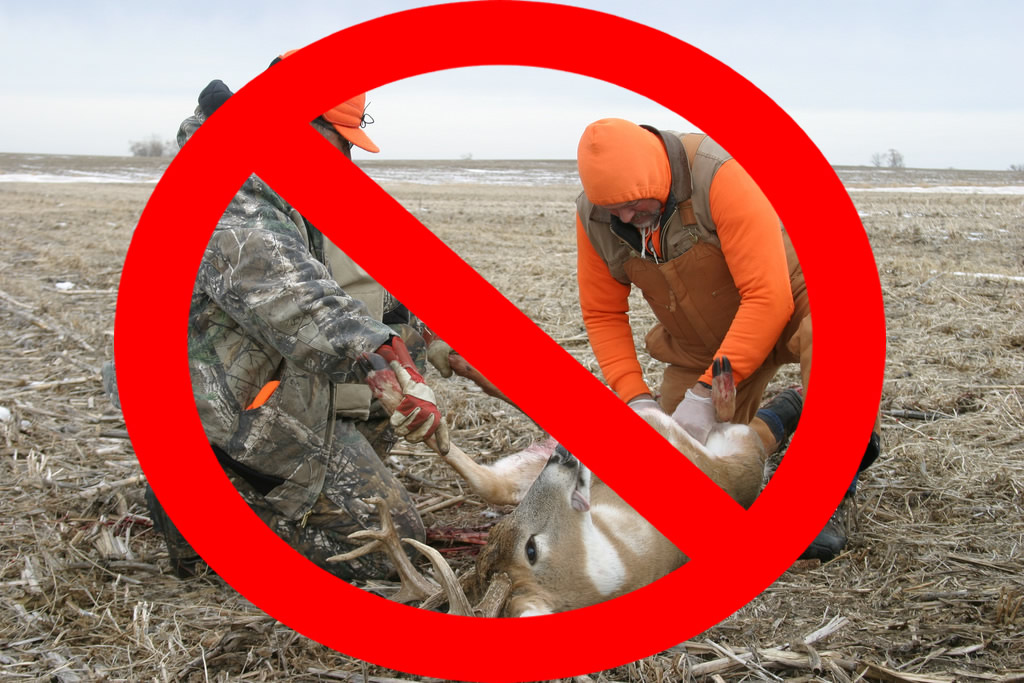As society evolves, so too does our understanding of animal rights and welfare. Among the contentious issues at the forefront of animal ethics is deer hunting. This practice, often justified under the guise of conservation and population control, raises critical questions about what constitutes cruelty to animals. The examination of deer hunting against the backdrop of ethics, ecological balance, and emotional resonance can engender a compelling shift in perspective, one that beckons a closer look at both the philosophy underlying such actions and their rippling effects on animal populations and ecosystems.
Deer hunting, particularly in regions where these animals proliferate, is frequently lauded as a necessary intervention to mitigate overpopulation. Proponents argue that without regulated hunting, deer populations could balloon uncontrollably, leading to severe ecological damage and increased vehicle collisions. However, this justification warrants scrutiny. Is the potential for ecological imbalance a sufficient reason to subject these sentient beings to the trauma and suffering of being hunted? The complexities of nature suggest otherwise.
Deers, much like humans, possess intricate social structures. They communicate through a range of vocalizations and body language. They experience fear, pain, and even grief. The immediate act of hunting—whether via bullets or traps—induces a visceral panic that disrupts their natural behaviors. When a deer is shot or trapped, the bloodshed is not merely a statistic. It is the culmination of a life abruptly extinguished, leaving behind a void that affects other members of their social groups. This interconnectedness within species prompts us to question the ethics of hunting from a broader context of animal kinship.
Moreover, the concept of “humane hunting” is often put forth as a counterargument to the cruelty objection. Advocates claim that seasoned hunters employ swift methods that minimize pain and suffering. While it is laudable that hunters aspire to reduce suffering, the reality is that even the most experienced marksman cannot guarantee instant fatalities. The unpredictability of rifle fire or the potential for non-lethal injuries adds layers of suffering almost unseen but deeply felt by these creatures. An injured deer may flee, only to succumb later to infection or starvation. Such scenarios force a reevaluation of what humane practices truly entail. If a practice causes the possibility of prolonged suffering, should it be deemed acceptable at all?
The emotional and ethical implications do not end with the hunt itself. The entire system of hunting often encapsulates rituals and practices—some steeped in tradition, others rooted in hobbyism—that can desensitize individuals to the conception of life and death. This desensitization can extend into broader attitudes towards wildlife. When animals are commodified as mere trophies or hunting experiences, their intrinsic value as living creatures diminishes in societal consciousness. This reductive perspective directly conflicts with the notion of animal rights and the moral obligation to treat all sentient beings ethically.
A cursory glance at the statistics surrounding hunting reveals patterns that are alarming. Various studies indicate significant declines in deer populations in certain areas due to intense hunting pressures. Although hunting organizations tout these as successes, the collateral damage involves not just numbers but also genetic diversity. By selectively removing certain individuals—often the healthiest or most robust—hunters inadvertently manipulate the gene pool. Consequently, this not only jeopardizes the future of the species but also threatens the ecological balance they help maintain.
In addition to the ethical dilemmas, hunting’s impact on ecosystems warrants equal deliberation. Deer play significant roles as grazers, influencing plant community structures and providing sustenance for a plethora of other species through their mere existence. Disrupting their populations carries potential ramifications that echo through food chains and ecological webs. It is crucial to understand that hunting is more than just an isolated act; it is intricately tied to environmental stewardship—or mismanagement. The ideals of conservation should reflect a holistic approach, one that considers the broader implications of human actions on wildlife.
Furthermore, modern society rests on the belief in progressive values—values that advocate for compassion and empathy. The juxtaposition of these ideals against the practice of deer hunting reveals a profound incongruity. Engaging in behaviors that appear contradictory to our core ethical beliefs serves only to sow discord within ourselves. By reexamining the practice of hunting through the lens of cruelty, we are compelled to weigh the emotional and psychological ramifications not only on the prey but also on the hunter and society at large.
Ultimately, to approach deer hunting with an animal rights-centric perspective isn’t merely to vilify those who partake in it but to advocate for a more compassionate world. Encouraging non-lethal means of population control, such as relocation or ecological management, presents a paradigm shift. Such alternatives foster respect for wildlife and promote coexistence rather than dominance.
While hunting continues to resonate with many as a tradition or sport, the underlying moral question remains: Should this practice continue to be sanctioned, or should it be scrutinized under the premise of animal cruelty? As we navigate these discussions, it is imperative to engage with empathy and a commitment to evolving our perspectives, ultimately leading towards a more compassionate coexistence with all living beings.








